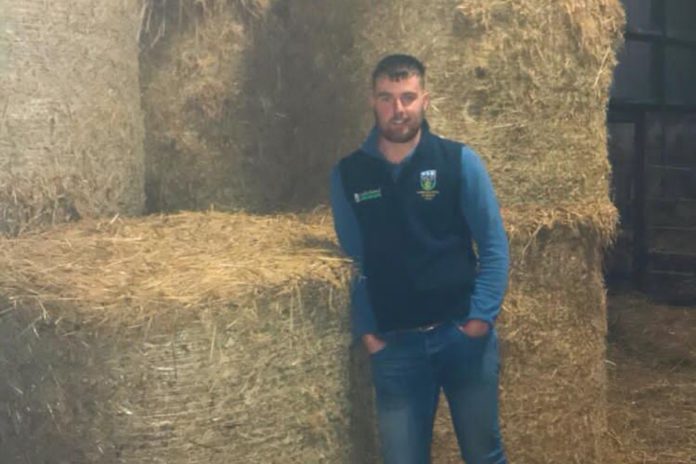Niall Bailey is a suckler farmer and agricultural science student, residing on the Wicklow/Carlow border, just outside Tullow.
The 20-year-old is the sixth generation of the family to carry on the long-standing farming tradition.
He completed his Leaving Certificate in 2017 and received an offer from UCD but deferred his place and decided to attend Kildalton Ag College for a year.
Niall enrolled in UCD in September 2018 and hopes to graduate in 2022 with a degree in Animal and Crop Production.
He claims he “couldn’t imagine myself doing anything outside of agriculture”. “My earliest memory of farming is going to the weanling sales with dad when I was four or five.” the third-year student told That’s Farming.
“Dad is the primary operator on the farm, but I’m there every weekend and during the holidays to give a hand. This year is different with Covid-19, so I’m there all the time.”
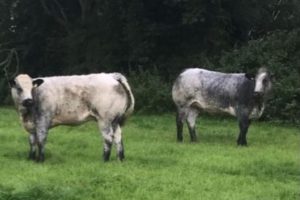
65-suckler cow herd
The father and son duo run a 65-cow suckler herd, which comprises 40 autumn-calvers and 25 spring-calvers.
Most of their cows are Limousins while there are some Simmentals dotted across the farm, which uses 100% AI. “We use as much Belgian Blue as possible on cows. Also, we utilise Limousin sires on maiden heifers and milkier-type cows to breed replacements.”
“The reason we use Belgian Blue is that we find there is a better market for them compared to other breeds. Most progeny are exported, and some heifers are sold for breeding.”
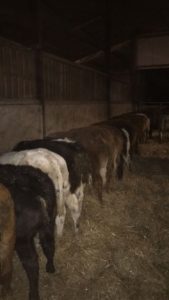
They house all autumn-calving cows in a cubicle shed and have a lie-back for calves. Furthermore, spring-calving cows are housed on slats up until six weeks before calving.
“We try to get the spring-calvers to grass as early as possible to utilize spring grass. We find cows love the cubicles, so we are hoping to build another cubicle shed in the coming years to have all adult stock lying on cubicles.”
Spring-born calves are weaned and graze redstart from late October until mid-February with access to the shed for shelter and silage. They are then turned out onto grass if ground conditions allow.
“We find redstart is an excellent way of reducing labour and reduces the cost of the winter. It is also a very healthy environment for young animals.”
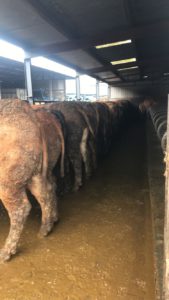
Satisfaction
“I enjoy working with the stock. It is satisfying to see them doing well. I am passionate about bovine genetics and trying to improve the quality of the cattle we have.”
“I have a good bit of responsibility on the farm as dad is an AI technician with Dovea Genetics and spends a fair bit of time off-farm, especially in May and June.”
“Also, I have to make daily decisions such as grass allocation for the cattle. Also, I find having responsibilities makes it easier to learn and improve skills.”
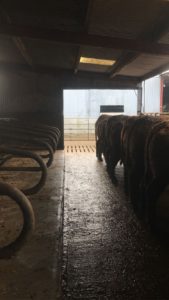
Education
A 30-week Professional Work Experience (PWE) will provide the suckler farmer with an ample opportunity to further develop his skill-set.
Niall will be beginning placement as part of his studies in January 2021. “I am looking forward to it as it will be a great experience. It will give me more of an insight into what I want to do in the future.”
“Student life is a lot different this year. I find it much harder to study at home; there’s always something to distract you.”
“I have enjoyed the course so far; I didn’t think it would be as good, to be honest. To be honest, I think it’s the people you meet, and friends that you make are what make it enjoyable for me.”
“Also, I thought when I started that I would never get used to such a big place, but there’s always someone to help you if you need it.”
“This course was my first choice; I never thought of doing anything else. The course is science-based in first year, but after that, it has all been related to farming in different ways.”
“There are some practical days which take place on UCD Lyons Farm, but this year, that has not been possible.”
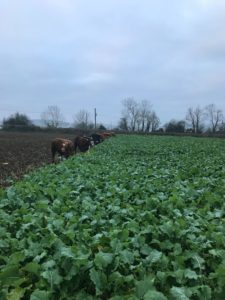
Future
Set to graduate in 2022, Niall relishes the idea of travelling when he completes his undergraduate studies to explore agriculture globally.
“I was hoping to go to New Zealand for work placement this year, but that won’t be happening now. I will probably go there after college. It would be an excellent experience to see something on a bigger scale to that of Irish farms.”
“My goal is to take over the farm at home, along with a job. I think there is a lot of negativity around the future of farming in Ireland, especially beef farming, but I would be optimistic about it.”
“The reason I think the future is bright is because I believe that our produce is some of the most sustainably produced food in the world. Sustainability and the environment are going to be really important in the future.” Niall concluded.
To share your story, email – [email protected]


